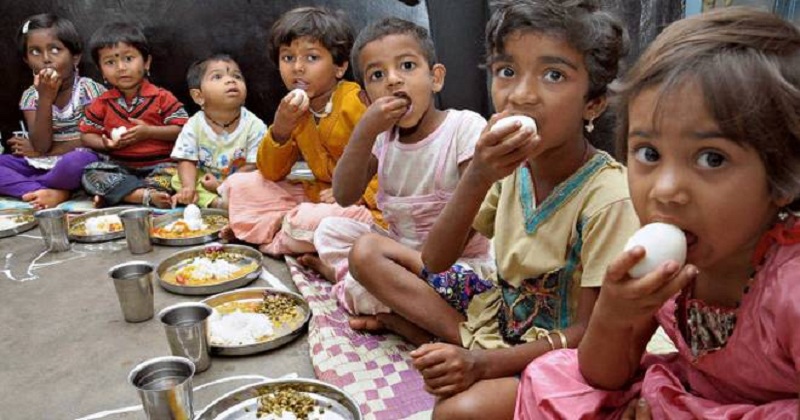
In a meeting of the National Nutrition Council on Thursday, the ministry was informed that about 14.57 lakh fake beneficiaries were registered with 1.88 lakh anganwadis in UP, a senior WCD official said.
Anganwadis, a type of rural child care centres, were set up by the government to combat undernutrition and stunting among children below the age of six years.
“The ghost children were identified after registration of beneficiaries with Aadhaar,” the official said.
There are a total of 1.08 crore children enrolled in anganwadis of Uttar Pradesh and Rs 2,126 crore has been sanctioned for these centres till February 2018 in this fiscal, according to government data.
The ministry gives Rs 4.8 and the state contributes Rs 3.2 for food per day for every child, the official said.
“With the identification of the fake children, it has been found that about Rs 25 crore can be saved every month in Uttar Pradesh,” he said.
Another Women and Child Development (WCD) official said about 39 per cent of the total child population in India resides in Uttar Pradesh and so the number of children in the state is high.
The identification and elimination of fake beneficiaries registered in various anganwadis across the country is an “ongoing process”.
The process was started in July after the Assam government during a physical identification of children found 14 lakh fake beneficiaries.
Stating that many lapses have been found in the food distribution system, WCD Minister Maneka Gandhi had directed all state governments to verify the number of children who “really need to be fed.”
There are around 14 lakh anganwadis across the country and 10 crore beneficiaries, who include children under the age of six and pregnant women and lactating mothers.
Gandhi in September said about one crore fake beneficiaries registered in various anganwadis have been identified and eliminated.
The identification of fake beneficiaries is also being done through smartphones having Integrated Child Development Services-Common Application Software (ICDS-CAS) app.

Post Your Comments